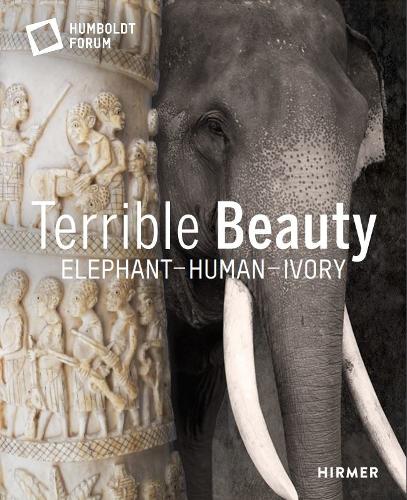
Terrible Beauty: Elephant Human- Ivory
(Hardback)
Publishing Details
Terrible Beauty: Elephant Human- Ivory
By (Author) Nicholas J. Conard
Contributions by Kathy Curnow
Contributions by Hartmut Dorgerloh
Contributions by Harald Floss
Contributions by Laura Goldenbaum
Contributions by Sarah M. Gurin
Contributions by Eboa Itondo
Contributions by Asher Jay
Contributions by Grit Keller
Contributions by Lydia Kitungulu
Hirmer Verlag
Hirmer Verlag
16th November 2021
12th August 2021
Germany
Classifications
General
Non Fiction
The arts: general topics
Ethical issues, topics and debates
Conservation of wildlife and habitats
736.6209
Physical Properties
Hardback
200
Width 215mm, Height 265mm
1040g
Description
The elephant is a much-admired animal, but it is also endangered. The ivory from its tusks has been in great demand across the centuries and throughout all cultures. What sort of material is it How has it been used in the past and the present And what can we do today to protect the world's largest mammals from poachers This lavishly illustrated volume embarks on a journey through cultural history and takes up a contemporary position.
Ivory fascinates. As long as 40,000 years ago people carved mammoth tusks into artful figures and musical instruments, and it remains popular as a material to this day. Ivory polarises, because the animal's tusks also stand for injustice and violence. The exploitation of man and nature, the threatened extinction of the elephant, poaching and organised crime are phenomena which we associate with ivory. The publication approaches the subject critically and poses the question as to our responsibility in our dealings with both animal and material.
Reviews
Terrible Beauty: Elephant, Human, Ivory . . . . was one of the first exhibits sponsored by the Stiftung Humboldt Forum, a newly formed partnership of cultural institutions in Berlin. This catalog, of the same name, documents the primary challenge undertaken in the exhibit: to examine ethical questions related to the appreciation, study, and exhibition of ivory, a material that is inevitably tied to and dependent upon the killing of elephants. The conflicting dynamics of this fatal combination of beauty and cruelty are woven throughout the catalog, poignantly leaving the reader both awed and saddened. * ARLIS/NA Reviews *
Author Bio
Born in Beijing in 1957, Ai Weiwei is renowned for making strong aesthetic statements that resonate across todays geopolitical world. From architecture to sculpture and installations, social media to documentaries, he uses a wide range of media for new ways of artistically examining society and its values. He is the recipient of the 2015 Ambassador of Conscience Award from Amnesty International and the 2012 Vclav Havel Prize for Creative Dissent from the Human Rights Foundation. Ais first feature-length documentary Human Flow premiered at the 74th Venice Film Festival in competition. He currently lives and works in Cambridge, Berlin, and Montemor-o-Novo, Portugal.
